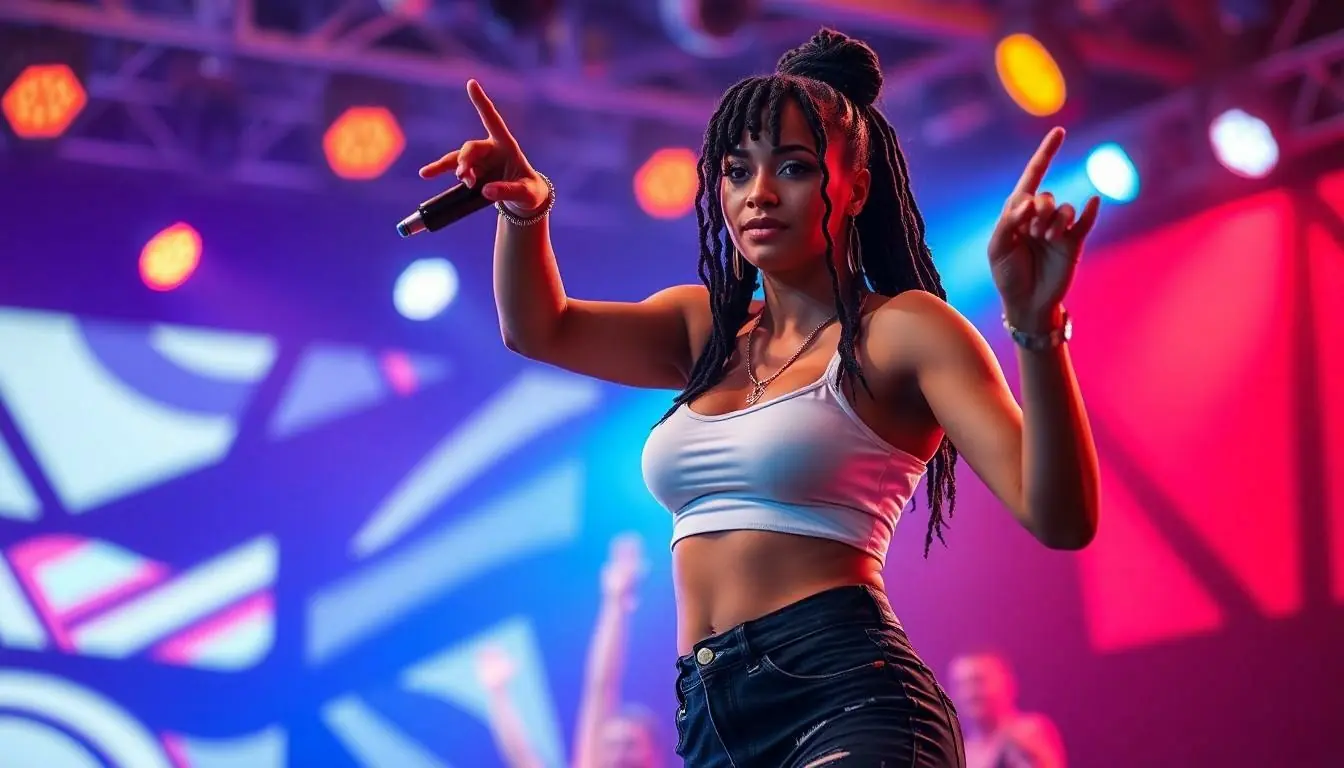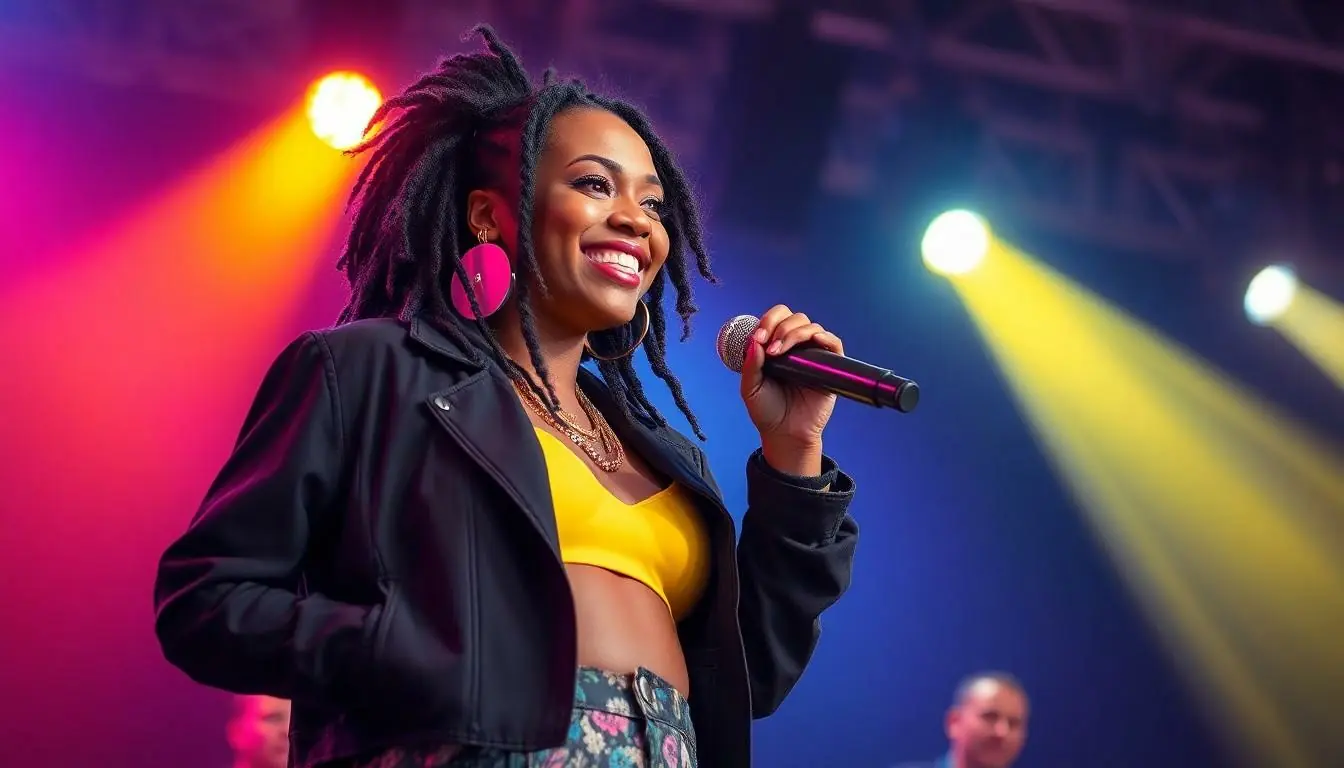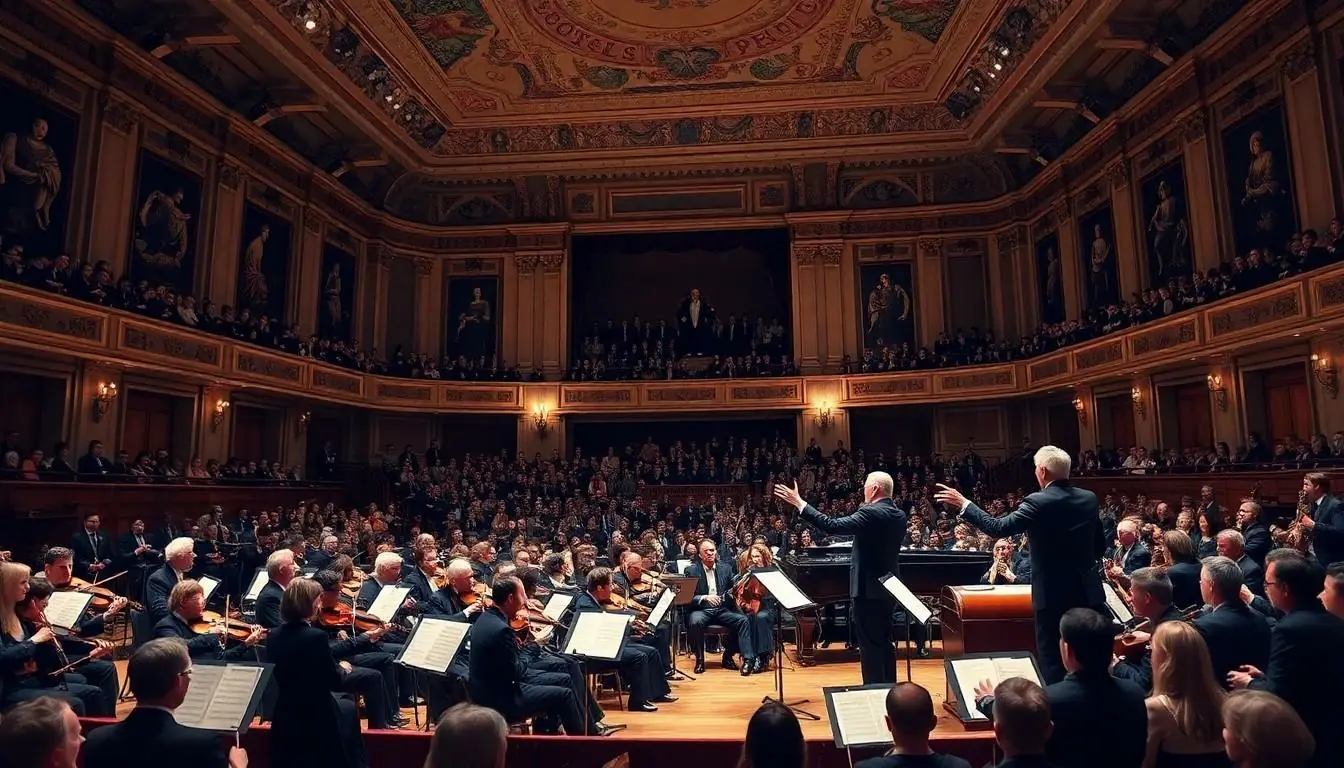In a world where beats drop harder than a hot mic, female hip hop artists are breaking barriers and stealing the spotlight. They’re not just adding a little spice to the genre; they’re serving up a full-course meal of talent, creativity, and unapologetic attitude. From fierce lyricism to unforgettable performances, these women are redefining what it means to be a hip hop artist.
Gone are the days when they were mere background dancers or sidekicks. Today’s female rappers are the main event, proving that they can hold their own against the best. Whether they’re spitting bars about empowerment or sharing their stories of struggle and triumph, their voices resonate with authenticity. So, buckle up as we dive into the vibrant world of female hip hop, where every verse tells a story and every beat ignites a movement.
Table of Contents
ToggleOverview of Female Hip Hop Artists
Female hip hop artists play a crucial role in the evolution of this genre. They bring unique perspectives and experiences that challenge societal norms. Artists like Nicki Minaj, Cardi B, and Missy Elliott have set benchmarks for success, proving that women can dominate the charts. Their contributions extend beyond music, influencing fashion and culture significantly.
Representation matters in hip hop, and female artists often tackle themes of empowerment and resilience. Many use their platforms to address issues like gender equality and mental health, resonating with fans worldwide. Raps delivered by women frequently flip the script on traditional narratives, showcasing strength and vulnerability simultaneously.
Diversity within this group enriches the genre. Artists from diverse backgrounds like Rapsody, Tierra Whack, and Megan Thee Stallion depict varied experiences, creating a tapestry of stories. Their distinct sounds highlight personal journeys, enabling listeners to connect on deeper levels.
Collaborations among female hip hop artists foster unity in a competitive space. When artists come together for projects, they amplify each other’s voices and strengths. Such partnerships often result in groundbreaking tracks that redefine industry standards.
The rise of social media has empowered these artists further. Platforms like Instagram and TikTok enable them to reach global audiences quickly. Engagement through these mediums allows fans to interact directly, fostering personal connections.
Recognition for their work has increased as well. Awards shows now celebrate female talent prominently, reflecting the impact they’ve made. Acknowledgments like Grammy nominations and BET Awards demonstrate their influence and artistry.
Female hip hop artists consistently redefine the landscape, ensuring their stories and messages resonate far beyond the microphone. Their journeys inspire future generations, driving the genre’s growth and evolution.
Influential Female Hip Hop Artists

Female hip hop artists play a pivotal role in shaping the genre’s landscape. Their powerful narratives and dynamic performances mark a significant departure from traditional representations.
Pioneers of the Genre
Queen Latifah, widely regarded as a trailblazer, broke barriers with her fusion of rap and social commentary. Salt-N-Pepa introduced female empowerment through their music, becoming role models for future generations. MC Lyte set a foundation with her pioneering lyricism that emphasized independence. These artists not only paved the way for women in the industry but also altered perceptions within hip hop. Their contributions inspired countless others to express their voices through music.
Contemporary Stars
Nicki Minaj captivates audiences with her versatile styles and clever wordplay, dominating charts since her debut. Cardi B combines raw authenticity with infectious energy, articulating the struggles and triumphs of her life. Megan Thee Stallion showcases her confidence and individuality, making significant strides in a male-dominated space. Rapsody’s lyrical depth addresses cultural issues, pushing for social change through her art. Tierra Whack experiments with creativity, bringing fresh perspectives to the genre. These contemporary stars continue to elevate hip hop, bringing new themes, sounds, and narratives that resonate with a diverse audience.
Impact on the Music Industry
Female hip hop artists significantly shape the music industry, marking their presence through innovative sounds and storytelling that engages listeners on multiple levels.
Chart Success and Recognition
Charting success highlights the achievements of female hip hop artists, with many consistently topping the Billboard charts. Nicki Minaj boasts multiple number-one hits, further proving her commercial viability. Cardi B received the Grammy Award for Best Rap Album, a first for a female solo artist in the hip hop category. Megan Thee Stallion’s “Savage” remix featuring Beyoncé topped charts worldwide, showcasing collaboration’s power. Rapsody’s nominations for the Grammy Awards signify critical acclaim and recognition within the industry. Each artist’s accomplishments reflect a growing acceptance of women’s voices in mainstream music, promoting diversity and inspiring the next generation of artists.
Influence on Pop Culture
Influence on pop culture extends beyond music, with female hip hop artists shaping fashion, language, and social movements. Artists frequently spark conversations on issues like body positivity and gender equality through their lyrics and public personas. Their bold styles often inspire fashion trends, setting new standards in the industry. For instance, Cardi B’s signature looks drive major fashion collaborations, impacting designer collections. Social media platforms allow artists to engage with fans directly, amplifying their cultural impact and promoting activism. Each contribution adds to a cultural narrative where female hip hop artists redefine norms and expand the genre’s reach in contemporary society.
Challenges Faced by Female Hip Hop Artists
Female hip hop artists encounter a range of challenges that hinder their progress in the industry. These obstacles include gender bias, limited representation, and the expectations placed upon their artistry.
Industry Gender Bias
Gender bias remains a significant issue in hip hop, impacting women’s opportunities and recognition. Many female artists face skepticism regarding their talent, often requiring them to prove themselves more than their male counterparts. Moreover, discussions around female artists frequently focus on physical appearance rather than lyrical prowess. This focus can detract from their accomplishments and contributions to the genre. Evidence shows that female hip hop artists receive fewer radio plays and less media coverage compared to their male peers. A study cited by the A.V. Club reveals that women accounted for only 21% of hip hop artists on billboards. This underrepresentation emphasizes the need for increased support and equity within the industry.
Representation and Diversity
Representation within hip hop still falls short, despite recent progress. Many artists struggle to find authentic platforms for their voices, which hinders the expression of diverse experiences. The industry has seen strides with artists like Nicki Minaj and Cardi B popularizing female perspectives, but systemic barriers persist. Many women of color face additional challenges that amplify their experiences, limiting access to opportunities and resources. As a result, the need for diverse voices in hip hop is paramount to capturing a broader range of narratives. Increased visibility of female artists brings attention to issues like body positivity, mental health, and gender equality. A more inclusive environment fosters collaboration, encouraging innovative projects that reflect a richer array of experiences and stories.
Female hip hop artists are not just reshaping the genre; they’re redefining it. Their powerful voices and unique perspectives challenge societal norms while inspiring countless fans worldwide. As they tackle important issues like gender equality and mental health, these artists create a cultural movement that resonates across generations.
The rise of female talent in hip hop marks a significant shift in the industry, showcasing the importance of representation and diversity. With each new track and collaboration, they continue to push boundaries and elevate the genre. The journey of female hip hop artists is far from over, and their influence will undoubtedly shape the future of music and culture for years to come.




